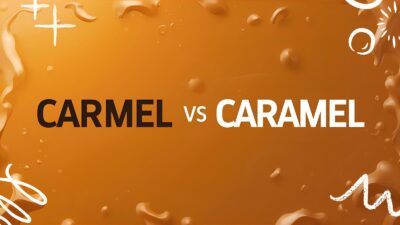Plant-based milk is more popular than ever, and two of the top choices are oat milk and almond milk. Many people search for “oat milk vs almond milk” because they want to know the differences in taste, nutrition, and health benefits. Some want a dairy-free option for coffee, while others are looking for a sustainable choice for everyday use.
But the confusion lies in which one is better. Is oat milk creamier? Is almond milk healthier? And which one is better for the planet? In this guide, we’ll break down the key differences, provide real-life examples, and share expert advice so you can make the best choice for your lifestyle.
Oat Milk vs Almond Milk – Quick Answer
Oat milk is creamier and better for coffee, while almond milk is lighter, lower in calories, and often chosen for weight control.
- Oat milk: Thick, smooth, and rich in carbs. Great for lattes, baking, and those who want a milk-like texture.
- Almond milk: Nutty, light, and low-calorie. Best for cereals, smoothies, and people watching calorie intake.
The Origin of Oat Milk vs Almond Milk
- Oat milk was first developed in the 1990s in Sweden as a sustainable alternative to cow’s milk.
- Almond milk has ancient roots, used in the Middle Ages as a dairy substitute during fasting periods.
The spelling is straightforward — both “oat milk” and “almond milk” follow standard English rules with no major variations.
British English vs American English Spelling
Both British and American English spell “oat milk” and “almond milk” the same way. However, product labeling may differ:
| Term | British English | American English |
| Oat Milk | Oat milk | Oat milk |
| Almond Milk | Almond milk | Almond milk |
| Dairy-Free Milk | Dairy-free milk | Non-dairy milk |
The main difference is in how packaging describes the product. UK often says “dairy-free”, while US brands prefer “non-dairy”.
Which Spelling Should You Use?
- In the US → “Oat milk” and “Almond milk” are standard.
- In the UK & Commonwealth → Same spellings apply, but labels may say “dairy-free”.
- For global use → Stick with “Oat milk” and “Almond milk.” Both are universally understood.
Common Mistakes with Oat Milk vs Almond Milk
- Writing “oatmilk” or “almondmilk” (should always be two words).
- Confusing dairy-free with lactose-free (not the same).
- Believing almond milk always has protein (most store-bought almond milk has little).
- Assuming oat milk is gluten-free (not all brands are certified gluten-free).
Oat Milk vs Almond Milk in Everyday Examples
- Email: “We provide coffee with oat milk and almond milk options.”
- News: “Oat milk sales surpassed almond milk in 2023.”
- Social Media: “Team oat milk ☕ vs team almond milk 🥛 – which one are you?”
- Formal Writing: “Almond milk is considered a suitable alternative for individuals with lactose intolerance.”
Oat Milk vs Almond Milk – Google Trends & Usage Data
Google Trends shows:
- Oat milk is trending higher in the US, UK, and Australia due to coffee culture.
- Almond milk remains strong in health-conscious markets, especially in California and Europe.
| Country | Most Popular |
| USA | Oat milk |
| UK | Oat milk |
| Canada | Almond milk |
| Australia | Oat milk |
| Germany | Almond milk |
FAQs on Oat Milk vs Almond Milk
1. Which is healthier, oat milk or almond milk?
Almond milk is lower in calories, while oat milk has more carbs and fiber.
2. Which is better for coffee?
Oat milk froths better and gives a creamy texture.
3. Is almond milk good for weight loss?
Yes, it’s lower in calories than oat milk.
4. Is oat milk gluten-free?
Not always—look for brands labeled gluten-free.
5. Which is more eco-friendly?
Oat milk uses less water than almond milk, making it more sustainable.
6. Do they have protein?
Both are low in protein compared to cow’s milk unless fortified.
7. Can kids drink oat or almond milk?
Yes, but they should not replace cow’s milk for young children unless advised by a doctor.
Conclusion
When it comes to oat milk vs almond milk, the choice depends on your needs. If you love creamy coffee and care about sustainability, oat milk is the better option. If you’re watching calories or prefer a lighter drink, almond milk is ideal.
Both are dairy-free and versatile, but they differ in nutrition, taste, and environmental impact. For everyday use, oat milk is often the favorite in lattes and cooking, while almond milk shines in smoothies and cereal.
The good news? You don’t have to choose just one—keep both in your kitchen and enjoy them in different ways.




